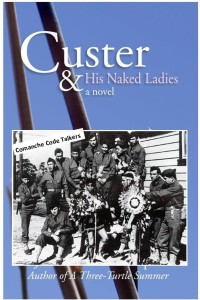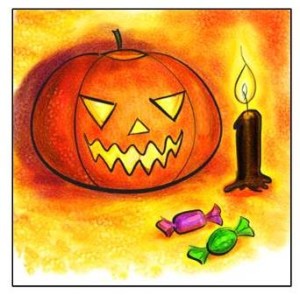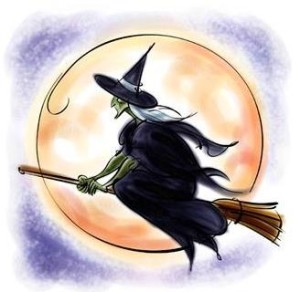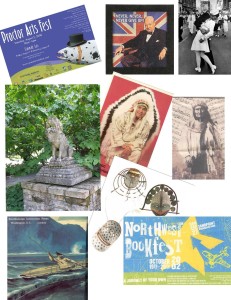
Note: photo is an overlay. It is not on the book cover.
Custer & His Naked Ladies
A modern-day Western
See the book on Amazon
Amazon and other Internet bookstores
Paperback or Kindle. suitable for New Adult and up.
Published by iUniverse.
Review
This heartwarming, well-crafted story owes much of its charm and poignancy to the author’s ability to create relatable, sympathetic characters in believable situations. Friendships and family relationships are richly developed. Native American and Hispanic cultural details add texture and genuine Southwestern flavor. Relatable.
Check out my other books and stories! Janelle Meraz Hooper
Soap, a Comanche Indian, is fighting the mob to keep a casino off the reservation. Things are starting to get ugly…
15. Soap on a Box
“Mom, why did this resort fold?” Glory asked as they neared the picnic grounds in the old deserted resort not far from Pete’s. “It looks like it must have been a great place at one time.”
“I think there wasn’t a need for it after the war. Ft. Sill shrunk to almost nothing,” Grace answered as she sulked because she lost the race to the driver’s seat to Vera. Scrunched in the back with her feet straddled over a picnic basket, she shared the seat with Maxine and Glory. In the front seat, Pauline was afraid to look at her because she knew she wouldn’t be able to keep from laughing.
“I think it was also bad luck,” Vera said from the driver’s seat that she’d beaten Grace to. “On opening day, the swings that hung out over the lake were full of kids. Then one of them apparently jumped into the water and onto a snake. He lived, but after that, no one would go in the water.”
“Grace, did you know that Howard and Pete started their resorts at the same time?” Maxine asked. “The land was on the reservation, so it was free, and the two had great plans to build until they met in the middle, forming one big resort.”
“I didn’t know that,” Grace answered. She asked, “Why didn’t Pete expand on his own?”
“Well, again, there were no customers after the war. There was no use in trying to add rides and other attractions.”
“Mom! You could have been like another Epcot Center! Who owns this place now?”
“The bank, I guess,” Maxine said. “Howard disappeared. He owed everyone a lot of money. Some people think that he’s at the bottom of the lake. Vera, park over there next to Soap and Kiowa. It’s getting crowded and we don’t want to get boxed in. I’m so stressed, that right after the fireworks, I want to go back to the cabins and go to bed. Besides, if you get a call about Dan, we might want to leave early.”
“Have you heard anything lately?” Pauline asked her sister.
“Not a thing,” Vera answered.
The women set up their picnic at a table close to where the soapbox was. Every year, the city raised money for charities by letting citizens give speeches for a fee. In the past, speakers had good naturedly made fun of the city council, crabbed about the poor roads, and threatened to stop paying taxes if Washington didn’t stop wasting money on doo-dads like peanut subsidies. Since Oklahoma didn’t have a peanut crop, there wasn’t any support for the goober goodies, as they were known to the Oklahoma farmers.
This year promised to be a lot more interesting. Everyone expected a heated debate over the proposed Indian casino.
Vera and Maxine set up the picnic for the first meal. They’d be there until the fireworks were over later that night, so food would be shuffled in and out of the ice chests all day. Grace had invited Kiowa and Marshall to eat with them; naturally, Maxine was glad they were going to stay near their table to protect Soap. No one around them seemed to notice the guests that Grace and her table had were wearing uniforms. The men had been around town for so many years that everyone just accepted them as a natural part of the crowd at any community event. They did notice the mobsters. Glory wasn’t surprised that everyone gave them a wide berth, even with Kiowa and Marshall there.
The mobsters just sneered when they saw Soap, as if the fact that they’d failed to kill him was unsurprising and inconsequential. Glory’s hope of seeing them squirm was not to be fulfilled. At least, they weren’t two-faced enough to smile at Soap and the women as they set up their picnic table. Glory gave them credit for that. They would look at the women and Soap and shift their gun holsters under their suits with their arms. Their demeanor said that they had everything under control, and that Soap’s presence made no difference to them. Had they planned for Soap to be rescued before he drowned? No one would ever know, but Glory didn’t think so.
Right next to them, sat Frieda in a lawn chair. By her purse was a disposable ice chest and a grocery sack that looked like it was full of hastily purchased snacks. “Oh, dear, it looks like she’s brought enough food for the mobsters too,” Grace said, “how did she ever meet them?”
“I don’t know, but her being close to them is no accident,” Vera observed, “One of the mob’s cowboy hats is under her chair.”
“Mom, I’ve told you for years that woman is nuts. She’s going to fool around and get herself hurt,” Glory said. “I can’t believe she was greedy enough to hook up with the mob. If something bad happens, she has it coming.”
The speeches wouldn’t start until nightfall when it cooled off, but groups for and against the casino were already forming around tubs of iced beer. Although it was hot, the adult men wore shirts; only the young boys were shirtless. Glory smiled at the sight of the men in their pressed, short sleeved cotton shirts. There was something respectful about their not sitting shirtless at the tables, as if they’d been raised by a Southern nanny. By contrast, the mafia formed an uncomfortable, over-dressed third group in striped suits and western shirts, and stood cockily around the soapbox. They’d mumble at each other, then sneer.
Mumble, sneer.
Mumble, sneer.
Vera casually observed the tribe from New York, “They look awfully smug, don’t they? I wonder what they’re up to?”
“I think they’re trying to intimidate us. And, you know, this is the first time they’ve seen us up close. Maybe they’re sizing us up,” Maxine said.
The women all put their purses on top of the table and raised their eyebrows at the men. The men looked at the flowered purses, then at each other. Puzzled, they shrugged their shoulders. Lordy, Glory thought, this could get ugly. These women had no idea what they would be getting into if a fight started. Glory did. She’d seen the fights between the students and policemen during the peace rallies when she was in college. Many times, she feared the police force might lose it and start firing at the students. It had happened before, at other colleges. If she could have thrown all the women into the car and headed back to Pete’s, she would have. As if they’d go and leave Soap. Well, then, she thought, if she could get Soap to leave, the women would follow.
“Soap, this doesn’t look good. Help me get the girls back to the resort, okay?”
“I can’t leave now, Glory. I could get Kiowa to run you girls home, but I think that we’re safer here, out in the open.”
“Fine. Let’s have a good old-fashioned gunfight and kill everybody.” Glory ignored Soap’s hurt look and turned to join the women.
She looked around and saw the tension rise like stink in the bottom of a boat. More and more people were showing up and Glory tried to guess which camp they’d fall into: pro or con casino?
Soap was looking over the crowd too, most likely trying to gage which way it would go after he spoke on the soapbox. Then he went over to a young Indian woman that Glory figured must be Pony On Fire. Wow! She’s stacked! Glory couldn’t help but notice. She looked down at her own modest bust line and almost groaned out loud. The man next to Pony on Fire had to be Charlie Breaks His Foot. Glory noticed he was nervous and kept pulling handwritten notes out of his pocket to study them.
“Mom, this is looking dangerous. Let’s get you and the girls out of here. Kiowa and I will take care of Soap.”
The women were stunned. “Leave Soap?” Maxine asked.
“Glory, I can’t help Dan,” Vera said. “I have no control over his well-being. But I sure as hell can support Soap. I’m so angry with these hoodlums that I’d pull out my gun and shoot them all at the drop of a tortilla.”
“Glory, have a glass of wine and relax,” Grace said.
“Oh, good, Mom. Let’s all get drunk. That’ll improve our aim.”
“I said you have a glass of wine. We’re okay. Aren’t we girls?”
“I’m okay, but a glass of wine might improve my disposition. Pass it over, Glory. Shall I pour you one?” Vera said as she picked up her glass.
“No thanks, Auntie. Maybe later.”
Lunch looked good, if a little eclectic. Vera brought her taco salad and Chex mix. Maxine had fried chicken and made cornbread. Grace had made a fresh fruit salad and cookies made with the wild pecans the women had swiped from the trees surrounding the church parking lot. Pauline brought a fresh stack of flour tortillas and homemade salsa. Soap put hamburger patties and kielbasa on the grill. Glory, who’d never been much of a cook, had swung by the grocery store and bought everyone’s favorite chips: Cheetos for Grace, potato chips for Vera, and Chili Fritos for Pauline. The women viewed the chips as expensive, and seldom purchased them for themselves, so they looked upon them as a real treat. Glory supposed their frugal shopping habits had to be a throwback to the times when they had little, before Grace’s shirt factory, because money hadn’t been tight for any of them for years. Every inch of table space was filled with plates of food. The empty spaces between the plates were filled in with deviled eggs and jars of watermelon pickles. Even so, no one at their table was eating very much.
Glory noticed that when Grace walked down to look at the water, one of the policemen just happened to be going in the same direction. When she came back, he came back.
Crowds formed for pie and watermelon contests, but no one at the women’s table was really in the mood. Glory didn’t even bother to go over when they sliced the watermelons. The women must have missed the buffalo-chip throwing contest because there was no activity in that area at all.
A group arrived and started arranging folding chairs into a circle. Glory hadn’t remembered the paper saying anything about a powwow, but they were often spontaneous.
She looked around the crowd to see if any of her old friends were there. She noticed the VFW table that was dressed in a red and white-checkered tablecloth with a canopy over it and little American flags running down the center. The sign hanging from the canopy said, “Our Comanche Veterans.” All of the men were wearing new straw hats with little American flags sticking out of the headbands. She spotted Marguerite, in her big straw hat, sitting at the next table. She was chatting with Charles Chibitty, one of the last remaining Comanche Code Talkers. Glory waved at Marguerite, grabbed a can of pop, and headed toward her table.
Glory wondered why more people didn’t know that the area had earthquakes, some of them had measured 5.0 on the Richter scale. It was every bit as likely that the cracked foundations in the area were due to tremors of a natural kind. But every time the ground shook, Lawtonians sent the bill for their foundation repairs to Ft. Sill.
The last speaker before the speeches addressed the casino issue was Pony on Fire. She told the crowd about the new Our Comanche Dictionary that was on sale by the tribe and urged that everyone buy at least one copy for each household. Pointing to a table stacked high with books, she urged Comanches to learn their tribe’s language and teach it to their children. It could start with just one word at a time at the breakfast table each morning, she suggested. As she stepped off the soapbox, she said she was off in search of a piece of ohape. Then she leaned back into the microphone and said, “In case you don’t have your dictionary yet, that’s yellow watermelon.” The crowd laughed as she melted into the crowd.
Chuck picked up the microphone and said, “Folks, I’ve been looking at that dictionary, and the Comanches have a word for just about everything. For instance, they have a word for Republican that means eagle white man, and a word for Democrat that means rooster-white-man. I think we could all use a copy, especially this time of year with elections coming up in the state. The crowd laughed, and more than a few looked over at the table stacked with books. “Now folks, Riding Wagon has a few words to say,” Chuck handed him the microphone and the crowd grew closer. Glory didn’t know which man to watch, Riding Wagon or Soap.
Suddenly, Soap turned and walked back to stand by Glory.
“What’s up?” Glory asked.
“They warned me that I should be thinking about my family, not just myself.”
“That’s pretty blunt. Did they say what they’ll do if you do speak?”
“No, but I’m going to alert Kiowa to get all of you out of here as soon as the speeches are over.”
“If you can find him. He’s gone.”
They both looked around, but couldn’t see either one of the law enforcement officers. Soap just shrugged, as if he didn’t need them anyway.
Riding Wagon began to speak with a shaking voice, “Ha maruawe.” The man said as he raised his hand in the traditional Indian greeting. “I am Walter. Some people call me Riding Wagon. I am Comanche. I am also the Comanche Tribal Chairman. I’m here to say a few words about the casino.” He looked around at the crowd and, hesitantly, started talking. “I’ve been a big disappointment to the white man. First, I refused to farm and fought for the right to hunt buffalo. So they killed all the buffalo.”
War whoops pierced the night air and chills ran up and down Glory’s spine. She had never gotten used to the war whoops that punctuated the air whenever Indians got together.
“Next, I refused to send my children away to a white school. I kept my kids at home and kept our language and traditions.”
More war whoops. Some of the Indian women joined in with their calls.
“Some of the white women were shocked when I decided to leave the reservation and move my wife and kids to town, next door to them, so I could enroll my children in the local whites’ school.” He shrugged his shoulders. “What else was I to do? I wanted the best for my children.”
The war whoops grew louder. Indians were moving towards the soapbox, mumbling agreement with every utterance from Riding Wagon.
“Like I say, I’ve been a big disappointment. I want to feed and clothe my family the same as the white man next door. I want to be able to take my kids to the doctor when they get sick. This is what a man does. What a good husband and father does.
“But how can I do these things? How do I pay for the things my family needs when there are no jobs for me here?” Riding Wagon turned toward the mob members. “Now, here comes an opportunity to make a little money, and the city fathers say, ‘No. Don’t build a casino. It’s not the right way to go.’ Which is the right way to go? A casino would make jobs and give us security. It would make us proud again.” His voice cracked and he swallowed his tears. He looked at Soap and pleaded, “All I want to do, Soap, is feed and clothe my family. I’m not looking for a fancy car or a swimming pool in my backyard.” He repeated tearfully, “A man has to be able to take care of his family.” Riding Wagon was so upset he almost crumbled when he stepped off the soapbox. Chuck was so busy wiping his leaky eyes that he forgot to tell him how much money he owed, and the tearful man melted back into the crowd. The mobsters were grinning at each other.
Chuck called, “Soap?”
“That’s a tough act to follow, Soap,” Glory said.
“Damn it to hell,” Soap said under his breath as he walked to the soapbox.
When he stepped up to the box, he reached into his pocket and gave Chuck a twenty dollar bill. “Chuck, you forgot to collect for that last speech, and it was a twenty dollar speech if I ever heard one.”
Soap stepped up on the soapbox and took a breath as he looked around at the crowd. “Ha Maruawe,” Soap said as he halfheartedly raised his hand. “Folks, I’m a Comanche and a lawyer. Everyone calls me Soap. A lot of you know by now that I’m running for tribal chairman. Riding Wagon is a friend of mine. He’ll always be a friend of mine even though we happen to disagree right now.
“I know we need a lot of things. We need food, jobs, education, medical care. A lot of things. Maybe we can get all that with a casino. That would be good.
“But if we did get all of those things, we’d also get a lot more. We’d get the crime syndicate. That could be bad. There are some of them over there,” he pointed to the mob. “You’ve probably seen them in their black limousine with the black windows riding around town. I hope you didn’t think that was me!” There was only a slight, nervous laughter in the crowd. Soap’s joke had bombed. He took a quick breath and pressed on, “The problem with the casino is that, along with the syndicate, comes crime, drugs, and other illegal activities. I’ve researched other casinos on tribal lands and I’ve found that when the syndicate moves in, drug use and alcoholism goes up. Taxes go up in the surrounding towns, including property taxes. They have to, to support the extra law enforcement and fire protection that a casino requires. Somebody has to pay for those extra services.” The crowd became quiet, and Soap continued, “I’ve seen the contract they want us to sign. They’re loaning us the money to build the casino at forty percent interest, plus a big piece of our monthly take. The contract says we have to pay back that money every month right on time, or there will be heavy penalties. What happens if there’s some trouble and Fort Sill and the Altus Air Force Base put our casino off-limits to soldiers and airmen?” The crowd gasped. “It could happen. The government could make our casino off-limits if just one soldier complained about losing money. We’ve seen that happen before to local watering holes. The loss of military customers makes a big impact on the bottom line of any business around here. If it happened to us, we’d still have to make that payment on the building loan even if we weren’t bringing in the money. Our tribes could be bankrupt in a matter of months. Then the mob would own the casino outright. On our land. So when it’s all said and done, will we be better off? I don’t think so.” Soap began making eye contact with the Indian women in the crowd. “And what kind of an example will we be setting for our youth? We’ll be showing them that the end justifies the means. That by turning our backs on what’s right, we condone what’s wrong.
“Mabel,” Soap said, picking a Comanche woman out of the crowd, “how will you feel when your grandchildren start drinking? Maybe start taking drugs? Is any amount of money worth that?” Soap pointed out another woman in the crowd. “Washka! You’re raising three boys. Do you want them working in a casino?” Soap called out, looking in another direction, “Cynthia Lyn, you have two girls. Do you want them selling drinks in a cocktail lounge? Is this the kind of life we want them to have? There’s a lot to be done to improve the lives of our tribal members, but this isn’t the way to go, my friends.
“Before I step down, I’d like to introduce our distinguished tribe from the East Coast so you can get to know them: “Harry Stone. Wave Harry, so the folks will see you. Harry did ten years for a bank robbery. Two tellers were killed. Now, Harry didn’t kill them. Some other guy did that, but he was there.
“Mel Stanley. You spent time for being caught with a lot of money and a car full of drugs—three doors down from an elementary school. Wave, Mel, the crowd wants to get to know you.
“And Monk, I haven’t forgotten you, you’re such a sweetheart. You fire-bombed a hamburger joint where some of your rivals were eating. Problem was, there was also a little league baseball team in there having a celebration dinner. Some celebration huh?
“Thanks for shooting up the cars in our apartment building,” Soap continued, “some of those bullets almost pierced Grace’s living room.” He turned again to the crowd, “You all remember Grace? She gave a lot of you jobs when she had her shirt factory. Now, the mob wants to force her to put the casino on her land.” A murmur ran through the crowd and a lot of hands shot up to wave at Grace.
“We don’t need these guys. And we don’t need their casino. We can take care of our families another way. Okay,” Soap admitted, “we’ve been passive too long. Let’s elect an aggressive tribal council and go for government grants, scholarships, health care, and more jobs. Now, we’re not voting tonight, but we can make ourselves heard.
“Do we have any Chippewa here?” he asked. A group hollered. “Any Cherokee?” another holler. Any Kickapoo?” It was silent. “Come on now, this is the end of the Trail of Tears, we must have 113 tribes here. There’s bound to be a few Kickapoos left.” Still silence. “Okay, maybe they’re all out on a buffalo hunt. How about Kiowas?” A loud holler went up. “Comanches?” The loudest, most bloodthirsty war whoops erupted from the crowd.
Glory looked around. Accustomed to war whoops at parades and in bars, the locals didn’t flinch, but the mob was shaken. They’d obviously grown up on the same Western movies that every American had. Movies that portrayed Indians as being bloodthirsty killers.
“My fellow Indians, we urge our children to make us proud of them. It’s time we made them proud! We are all tribes, but we are one—Indian!” With that Soap let out a chilling war whoop that was answered in kind.
As Soap left, the crowd stood and clapped. He put several bills in the kitty. As he left the soapbox area, a protective circle of state police came out of the crowd and formed a circle around him. That’s where Kiowa went, Glory thought. To call in reinforcements.
The rest of the speeches were forgotten. The crowd turned to go back to their tables, but they were pulled back to the soapbox by Monk, who swaggered up to the front of the crowd and grabbed the microphone. “Ladies and gentlemen,” the man sneered as he took some papers out of his inside suit pocket. Startled, the crowd turned to look at the surprise speaker. The crowd gasped when they heard him read, “You are on private property. Please vacate the new building site of the Silver Buffalo Casino immediately.” As he stepped down from the box, he sarcastically threw a quarter in the pot.
Glory looked around for the local banker, but he wasn’t anywhere in the crowd. He had unloaded a piece of property that had been a yoke around the bank’s neck for years but hadn’t had the balls to come to the picnic and face the townspeople. The coward.
The state and local police stood by helplessly as the crowd hastily packed their picnic gear and headed for their cars. As Glory and the rest of the women followed the crowd to the parking area, she took one look back at the empty soapbox. It looked sad, as if knew it had been used inappropriately. The red, white, and blue holiday bunting that had decorated it was tattered and sagging onto the dirt. The last thing she saw before she turned toward the car was Frieda playfully wearing one of the mob’s cowboy hats.
“Somebody needs to be slapped,” Glory muttered underneath her breath.
If you like this excerpt, please share!









